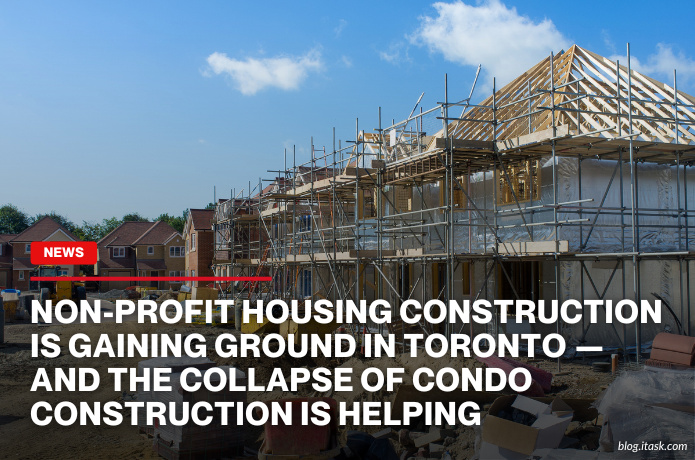Non-profit housing construction is gaining ground in Toronto — and the collapse of condo construction is helping
Non-profit housing construction is gaining ground in Toronto — and the collapse of condo construction is helping

Non-profit housing construction is gaining momentum in Toronto, as the city's condo market faces a significant slowdown. High interest rates and rising construction costs have led to a surplus of unsold condos, creating opportunities for affordable housing initiatives to expand. The city is now focusing on converting these vacant units into affordable homes for residents in need.
Toronto has allocated $50 million through its Multi-Unit Residential Acquisition (MURA) program to purchase unoccupied condominiums. These units will be offered as rent-geared-to-income housing, helping to alleviate pressure on the city's shelter system. This strategy aims to repurpose existing housing stock to address the growing demand for affordable living spaces.
The federal government is also contributing to these efforts. Through the Housing Accelerator Fund, Toronto is set to receive over $471 million to fast-track the construction of nearly 12,000 new housing units over the next three years. This funding will support the development of multiplexes, apartment buildings, and below-market rentals, streamlining zoning approvals and cutting red tape to expedite the building process.
Non-profit organizations are playing a crucial role in this housing shift. Many community housing groups are now in a better financial position to undertake new projects, as mortgages taken out 25 or 30 years ago are nearing completion. This financial flexibility allows them to invest in new affordable housing developments, further expanding the city's housing options.
Initiatives like the Housing Now program are also making strides. With 22 sites earmarked for development, the program aims to produce over 16,000 new homes, with approximately one-third designated as affordable rentals. Projects such as the one at 50 Wilson Heights Boulevard plan to create 1,484 new residential homes, including 520 affordable rental units, alongside community spaces and childcare centers.
As Toronto navigates the challenges of a cooling condo market, these collaborative efforts between government bodies, non-profit organizations, and private developers are reshaping the city's housing landscape. By repurposing existing structures and accelerating new developments, Toronto is taking significant steps toward providing more affordable housing options for its residents.
